
Is your child too anxious to go to school?
Like adults, it’s normal for kids to have wobbles and worries. But what happens when anxiety becomes an ongoing problem, causing a lot of distress and impacting school attendance? “It is natural for children to not want to go to school from time to time. For example, they might be worried about a test, or a problem with a friend,” says Dr Julia Clements, principal educational psychologist for children’s mental health charity, Place2Be. “With a bit of support, most children will be able to attend school regularly and to not avoid it when things get a bit tricky. However, other children may become so anxious that they start to avoid school all together.” Spotting the signs Remember, children often aren’t able to tell adults when they’re struggling with anxiety. Parents and carers can look out for signs, though. “Anxiety can show up differently in different children. Your child may become tearful or quiet at bedtime, for example, or report feeling so ill they cannot attend school. Alternatively, your child may appear quite angry, argumentative and refuse to get ready for school,” says Clements. Dr Marianne Trent, clinical psychologist and author of The Grief Collective, who previously worked in child and adolescent mental health services (CAMHS), adds: “A child may complain about not wanting to go to school, or that it is boring or that they have tummy ache. They may drag their heels more about leaving the house or walking to school.” Responding with care Showing that you are interested and care about how they’re feeling can be really helpful. Having your support could help alleviate their worries, and hopefully you’ll be able to work through some strategies together. “It is important that parents and carers acknowledge the distress their child is experiencing, and that they are finding going to school a real challenge,” says Clements. “For example, you might say something like, ‘I can see that you are really worried about going to school and that going in will be really hard for you’. “However, it is also important to help your child to ‘face their fears’ and to attend school, despite it being the last thing they feel like doing! Acknowledge that this might be tough, but that you believe in them and will support them to do this difficult thing. Praise and encourage your child for any small steps of progress they are able to make towards attending school regularly.” Trent suggests talking to them about what might have caused their sudden reluctance to attend school: “Asking how they’re feeling and if anything happened the day before which made them feel worried, sad or confused can be a useful first step.” It might be easy for parents and carers to get frustrated and possibly angry if children refuse to go to school. However, this could lead to more distress, so it’s helpful to try and communicate calmly. Trent says: “It’s worth knowing that anger is a secondary emotion, and that this might mask a feeling of not having control, sadness, or even parental anxiety too. “Trying to enter into conversations when both parties are feeling well rested can give the best chance of staying calm. It’s also important that repairing any ruptured relationships is modelled ideally as soon as possible after any harsh or loud words have been spoken,” she adds. Talk to the school If the pattern continues, Trent says: “Arranging a meeting to discuss with the school can be an important step forward. If school attendance drops below a certain percentage, then it may trigger a referral to Child and Adolescent Mental Health services (CAMHS) and/or social care. “If there is a pastoral department in school, then arranging for the child to spend time there doing some 1:1 or group work can be useful. Similarly, liaising with mental health and support services for therapy or support can be transformational too.” Your GP can help advise on mental health support, and some schools may also have counselling services in place. However, Clements says there may be various ways school staff can potentially help – simple adjustments that could make a big difference: “For example, your child may like to be met at the gate, or being given a special job to do in the morning.” Is there anything else going on? It’s important to consider whether other factors could be coming into play, which may require additional attention and support. Clements says: “Do make sure that your child is safe from harm at school – for example, their avoidance of school is not due to them being bullied. If your child is avoiding school because of their neurodivergence or additional needs, then liaise with the SENCO (special educational needs co-ordinator) to make sure that reasonable adjustments are being made.” Read More Charity boss speaks out over ‘traumatic’ encounter with royal aide Ukraine war’s heaviest fight rages in east - follow live Could talking to toddlers be the key to early brain development? What’s the link between the menopause and anxiety? How to encourage green-fingered kids
1970-01-01 08:00

Could talking to toddlers be the key to early brain development?
Talking to toddlers can help advance early brain development, scientists have found. Researchers from the University of East Anglia (UEA) discovered that two-and-a-half-year-olds who heard more speech in everyday life had more myelin – a substance that makes brain signals more efficient – in language-related areas of their brains. The researchers said their findings, published in the Journal of Neuroscience, demonstrate how talking to toddlers can shape their developing brain. Lead researcher Prof John Spencer, from UEA’s School of Psychology, said: “We know that children’s brains develop very rapidly in the first two years of life, with brain volume at about 80% that of an adult brain by the age of two. The message to caregivers is clear - talk to your baby, your toddler, your child. Not only are they listening, but your language input is literally shaping their brains Prof John Spencer “Myelin is made up of protein and fatty substances and forms an insulating layer around nerves in the brain.” He added: “Imagine you have a hosepipe with lots of holes in it. “Myelin is like wrapping the hosepipe with duct tape – it insulates neural fibres, bringing more of the ‘signal’ from one brain area to the next.” For the study, the researchers gave 163 babies and toddlers small recording devices to wear for three days. They analysed just over 6,000 hours of language data in total, which included words spoken by the children as well as speech from adults. When the children were asleep, the researchers carefully placed them in an MRI scanner to measure myelin in their brains. Prof Spencer said: “What we found is that the toddlers who heard more speech in their everyday environment also had more myelin, which is likely to support more sophisticated language processing. “In other words – talking to your kids is very important in early development as it helps to shape the brain.” The researchers said their study is one of the first to show that listening to speech is associated with brain structure early in development. Prof Spencer said: “Prior work showed a similar association in four to six-year-olds, but our findings push this association much earlier in development. “Indeed, we even found associations between language input and brain structure in six-month-old infants.” He added: “Although there is still much more to learn about these processes, the message to caregivers is clear – talk to your baby, your toddler, your child. “Not only are they listening, but your language input is literally shaping their brains.” Read More Charity boss speaks out over ‘traumatic’ encounter with royal aide Ukraine war’s heaviest fight rages in east - follow live Is your child too anxious to go to school? What’s the link between the menopause and anxiety? How to encourage green-fingered kids
1970-01-01 08:00
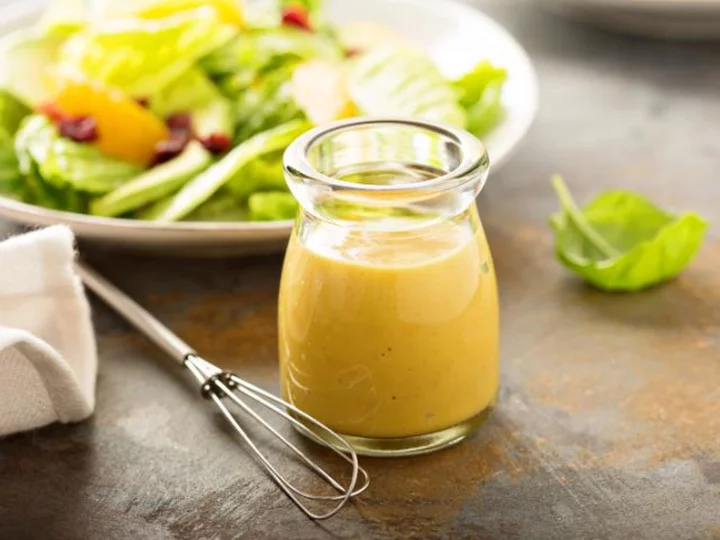
You should make your own salad dressing
Homemade salad dressing is so easy to make. It's inexpensive and fresh, and when it comes to flavor combinations, you're only limited by your imagination, not restricted to what you'll find in a bottle.
1970-01-01 08:00
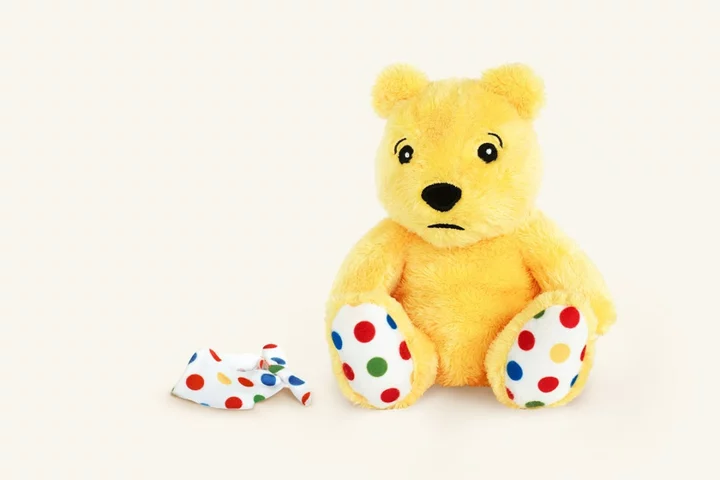
Children In Need removes Pudsey’s bandana to show not all challenges are visible
BBC Children In Need has launched a new Behind The Bandana campaign to mark Mental Health Awareness Week. The charity has temporarily removed mascot Pudsey’s eye covering to show “not all of the challenges that children and young people may be facing are visible”, the broadcaster said. The campaign encourages conversations between children and parents, carers and other trusted adults “to ensure no child faces their emotional and mental health challenges alone”. Former Love Island contestant Dr Alex George, who has campaigned for better mental health after the death of his 19-year-old brother Llyr by suicide in 2020, has been named Behind The Bandana ambassador. He said: “I know how important early intervention is in helping make a difference to the emotional wellbeing of children and young people and so I am very proud to be the ambassador of such a powerful campaign that really shines a light on the mental health crisis we are facing. “As highlighted by Pudsey bear himself, mental health issues can be less visible on the outside, but conversations and positive relationships really can help.” What’s also clear is that we can all play a role in addressing early signs of worry and anxiety by showing children and young people that we’re here to listen and to support them Simon Antrobus, Children In Need As part of the campaign, Children In Need has released the findings of a new Censuswide survey shedding light on how comfortable children feel when asking for help with their feelings and how often they feel the need to put on their “metaphorical bandana” and hide their emotions. While nine in 10 parents surveyed said they talk to their child about their mental health at least once a month, more than a quarter of young people surveyed said they had not talked to someone they trust about their mental health in the last six months. Children In Need’s boss Simon Antrobus said: “This research is a clear indication that our Behind The Bandana campaign is urgently needed. “What’s also clear is that we can all play a role in addressing early signs of worry and anxiety by showing children and young people that we’re here to listen and to support them. “By recognising and acknowledging that some feelings of worry and anxiety can be hidden means early conversations, sensitively delivered with kindness and empathy, can make a real difference to a child’s wellbeing and can help prevent mental health problems from becoming embedded.” Read More Charity boss speaks out over ‘traumatic’ encounter with royal aide Ukraine war’s heaviest fight rages in east - follow live
1970-01-01 08:00
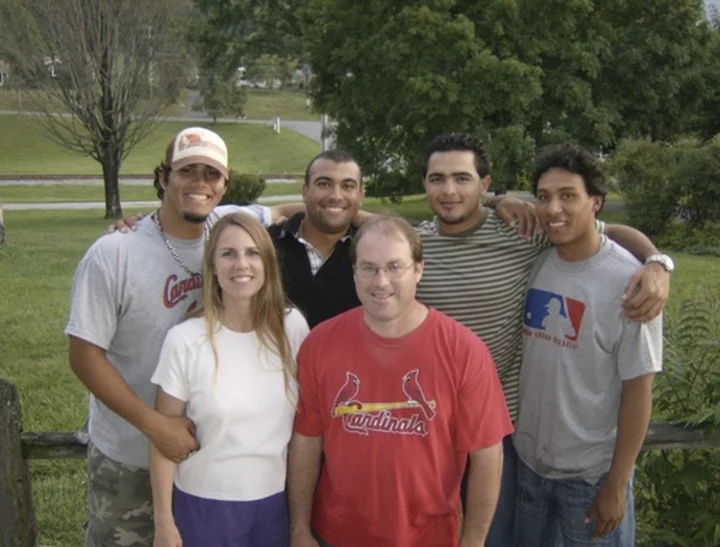
Minor league host families, once a pillar of pro baseball, phased out by new CBA
After decades of supporting poor, young baseball players as they began their professional careers, minor league host families have officially been phased out
1970-01-01 08:00

How to check if you have skin cancer: Symptoms and signs to look out for
It is the most common form of cancer in Britain and kills around 2,100 people in the UK each year, but still a “shocking” number of people remain unaware of the dangers of skin cancer, its links to sunburn, and how to spot the signs of this deadly disease. An overwhelming 77 per cent of people would not recognise signs of a melanoma – a malignant skin cancer tumour – despite the majority of Britons worrying about skin cancer, a new study by the British Association of Dermatologists (BAD) has found. There are two types of skin cancer; melanoma, the deadliest form of which around 13,000 new cases are diagnosed each year in the UK, and non-melanoma, of which there are more than 100,000 new cases diagnosed every year. The risk of melanoma is doubled if a person has had five or more sunburns at any age, the Skin Care Foundation states, but adds that experiencing just one blistering sunburn in childhood or adolescence more than doubles a person’s chances of developing a melanoma later in life. Non-melanoma comes in two most common forms: basal cell carcinoma, which accounts for about 75 per cent of skin cancers, and squamous cell carcinoma, which accounts for about 20 per cent. It is mainly caused by overexposure to UV light. But despite the serious risks of cancer posed from sunburn, nearly three quarters of people surveyed by BAD admitted to having been burned in the past year alone, while 40 per cent of people were found to never check themselves for signs of cancer. Here is how to check for possible signs of melanoma and non-melanoma skin cancer: Melanoma: The NHS states the first signs of a melanoma is often a new mole, or the change in appearance of an existing mole. Moles are usually round or oval, with a smooth edge, which is not bigger than 6mm in diameter. Any change in size, shape, or colour, any bleeding, crustiness or itchiness, or how painful a mole is should be shown to a doctor. The NHS has an ABCDE checklist to help people tell the difference between a normal mole and a melanoma: Asymmetrical – melanomas have two very different halves and are an irregular shape. Border – melanomas have a notched or ragged border. Colours – melanomas will be a mix of two or more colours. Diameter – melanomas are larger than 6mm (1/4 inch) in diameter. Enlargement or elevation – a mole that changes size over time is more likely to be a melanoma. Non-melanoma: Non-melanoma usually appears as a lump or discoloured patch of skin that does not heal. If a person experiences on of these patches that do not heal after four weeks, they should see their GP. Signs of Basal cell carcinoma can look like a small red or pink lump, though it can also appear as a pearly-white or waxy-looking lump, or it can also appear as a red or scaly patch of skin. The lump, whether pink or white, will grow slowly and can become crusty or bleed, or become a painless ulcer. Signs of Squamous cell carcinoma are the appearance of a firm pink lump. This lump could have a flat, scaly or crusted surface, often bleeds easily and feels tender to touch and can also become a painless ulcer. Read More UK skin cancer statistics 'shocking' Skin cancer referrals up 41 per cent in 5 years Wolverine star Hugh Jackman treated for skin cancer Cheap holidays blamed for huge rise in skin cancers
1970-01-01 08:00
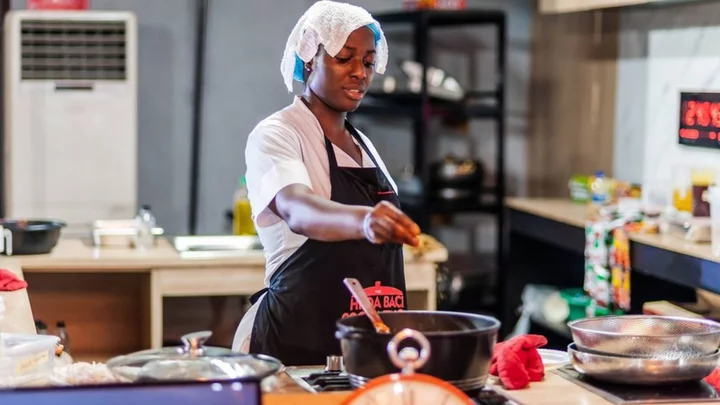
Hilda Baci: Nigerian chef eyes cooking world record
Hilda Baci has cooked over 100 different dishes since turning on her cooker at 15:00 GMT on Thursday.
1970-01-01 08:00

Applebee’s Fan-Favorite 2 for $25 with Steak Makes a Perfect Date Night Match!
GLENDALE, Calif.--(BUSINESS WIRE)--May 15, 2023--
1970-01-01 08:00

Don't use sugar substitutes for weight loss, World Health Organization advises
The World Health Organization said a systematic review of the available evidence had suggested that use of non-sugar sweeteners "does not confer any long-term benefit in reducing body fat in adults or children."
1970-01-01 08:00

Montreal bike festival heralds release from grip of COVID
In early June, Montrealers will line sidewalks, toot horns and pound drums as swarms of cyclists wend their way through the iconic spaces of that bicycle-mad city
1970-01-01 08:00

UK ‘Greedflation’ Concerns are Groundless, Ex-BOE Ratesetter Says
British companies are not taking advantage of households by using double-digit inflation as cover for unnecessary price increases
1970-01-01 08:00
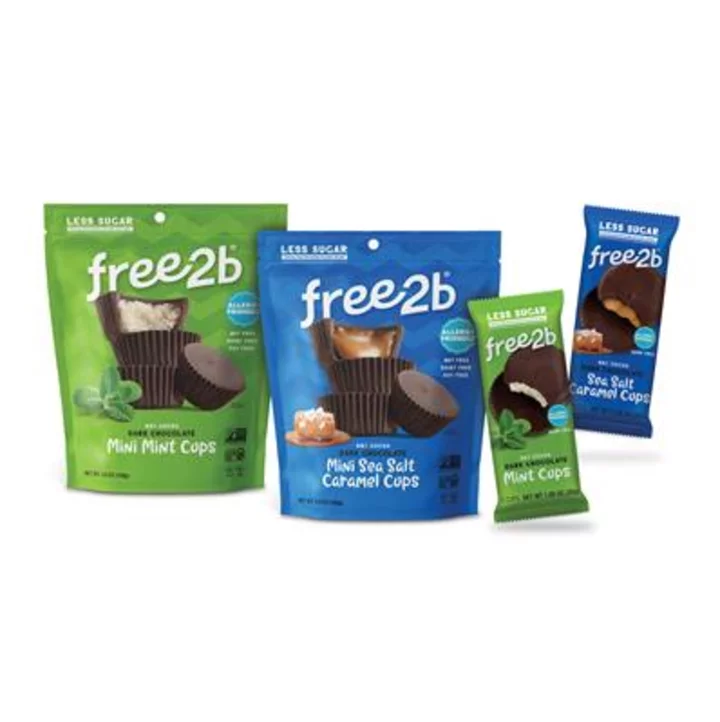
Free2b Foods Expands Access To Indulgent Snacking For People With Food Allergies
NEW YORK--(BUSINESS WIRE)--May 15, 2023--
1970-01-01 08:00
